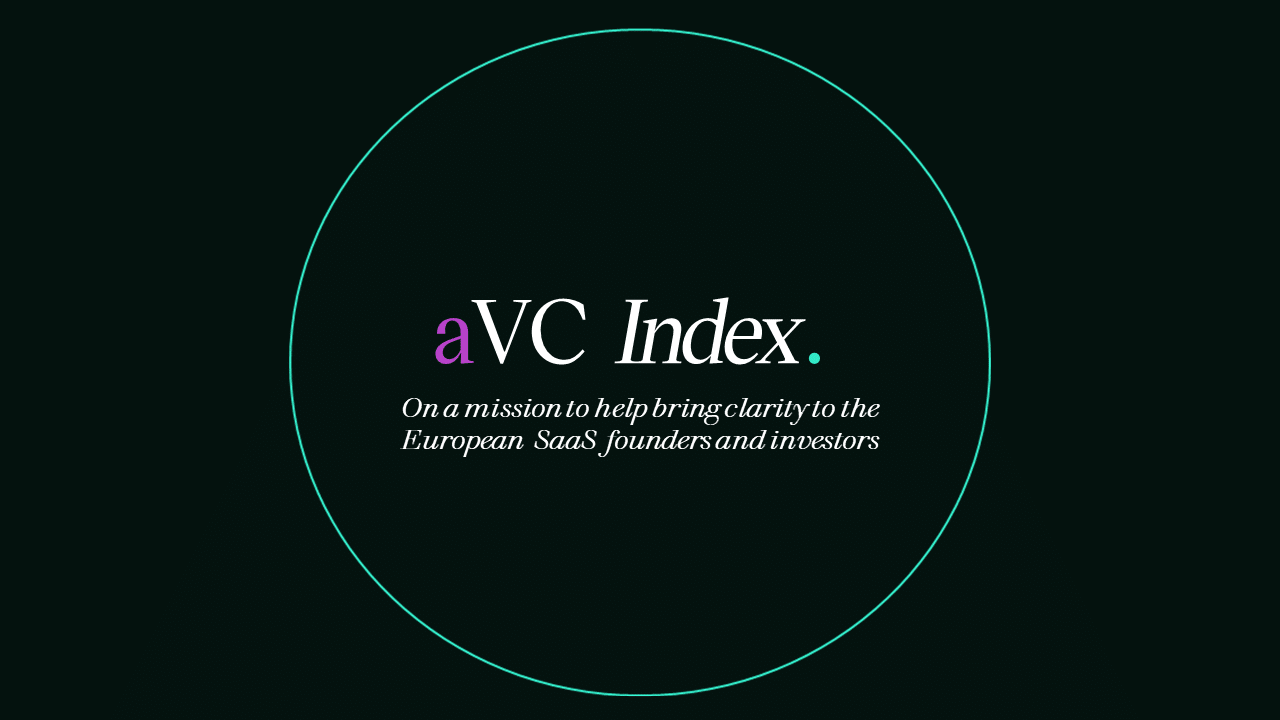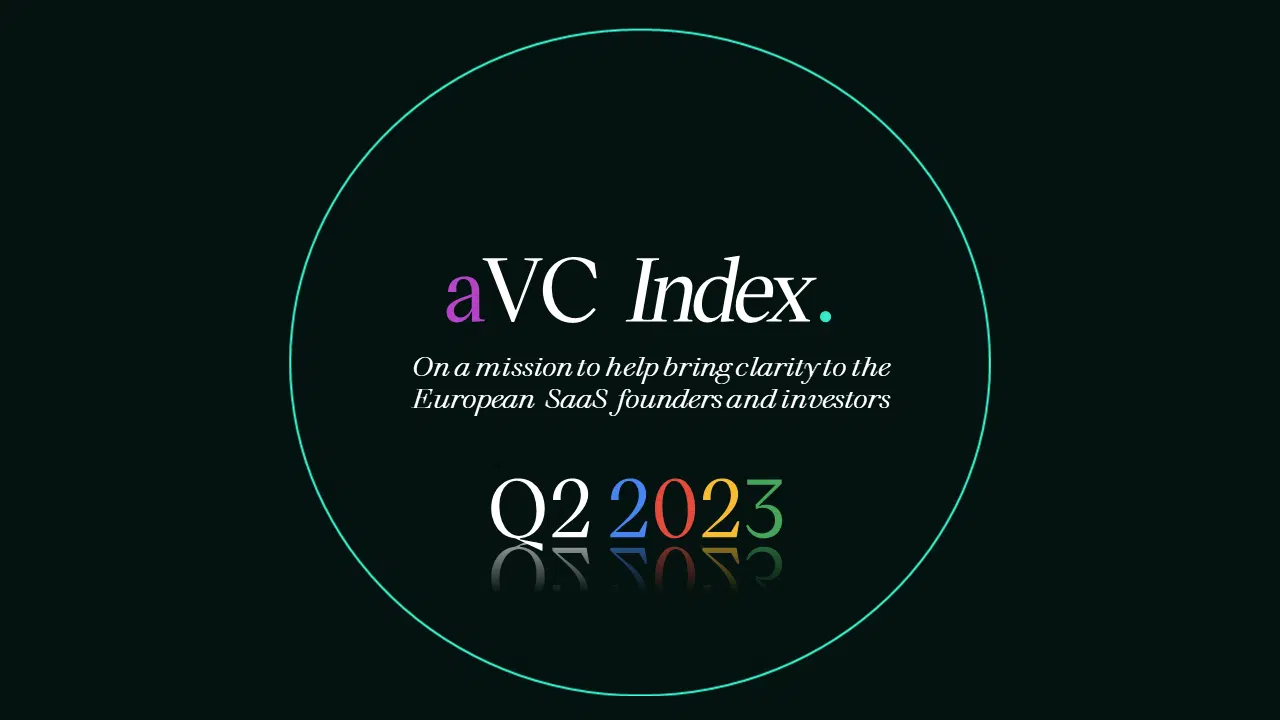The state of early-stage European VC in Q3 2023
Early-stage fundraising across Europe shows signs of recovery but growth stage still faces turbulence, Q3 2023 aVC index reveals…
- The latest quarterly aVC index reveals green shoots of recovery in early-stage fundraising and investing across Europe
- In Q3 2023, the aVC index came in at 68 – up from 54 in Q2. This represents an expansion in the number of companies in investors’ active pipeline
- There was a 50% rise in the number of term sheets issued with more companies raising across the board, and a sustained appetite for new investments
- Looking ahead, investors expect to deploy £1bn before the end of the year, with £700m going on new investments – a sharp swing from Q2’s focus on follow-ons
After a turbulent and uncertain year, the latest aVC index shows signs that the worst of the fundraising drought is over and early-stage venture capital is on the path to recovery – albeit slowly.
Inspired by the PMI index in the public markets, the quarterly aVC index is a forward-looking, early indicator of fundraising activity across Europe. In Q2, the aVC index came in at 54. A reading below 50 represents a contraction in the market, whilst 50 represents no change. By Q3, the aVC index had risen to 68 – showing a significant expansion in the number of companies in investors’ active pipeline. This figure was consistent across all regions.
The results of the index are established through anonymous surveys with leading European investors deploying capital at Seed, Series A and Series B. These investors account for more than 2,500 portfolio companies across the entire European ecosystem.
To put this expansion into context, the survey revealed that 86% of funds in Q3 2023 issued at least one term sheet. This is in stark contrast to Q2 when 25% of VCs reported not having issued any term sheets at all. In fact, the number of median term sheets per fund in Q3 increased 50% to three term sheets, with multiple investors reporting having issued four term sheets or more in the same period.
Furthermore, investors expect to deploy £1bn – £700m on new investments, and £300m on follow-on deals – before the end of the year in a further sign that the market is looking up.
Fragmentation remains
However, deal outlook varies across investment stages. Seed and growth stage VCs report more companies looking for funding, yet they also anticipate deploying less capital in Q4.The survey results forecast as much as a 60% fall in expected capital deployment at the growth stage over the coming months, compared to Q2. This is likely to have been caused by investors adjusting their expectations as we approach the end of the year, a significant number of companies running out of cash, and investors setting a higher bar for SaaS deals.
In contrast, Series A investors saw a modest pipeline expansion with aVC of 55 and a stable valuations outlook. More than 70% of Series A investors surveyed said they expect valuations to stay the same, and not a single Series A respondent said they anticipate an increase. Series A investors have issued, on average, 50% more term sheets in Q3 compared to Q2 though, indicating sustained appetite for new investments. The surveys suggest that this is set to continue in Q4 with an expected 40% increase in capital deployment. In short, Q4 is promising to be a good time to be raising a Series A.
Looking ahead
Looking ahead, the outlook for valuations continues to be mixed, with most survey respondents expecting valuations to remain stable over the next three months, and 28% believing they have further to fall. One bright spot is in the UK, where 14% of VCs expect valuations to increase by up to 10%.
According to the survey results, a fifth of all VC portfolio companies have restructured to get on path to breakeven over the past 12 months, suggesting there may be a further shift in the medium-term demand for VC capital.
This data combined with lower investor deployment outlook for Q1 2024 suggests that it will be a measured recovery across European SaaS.
The aVC index also showed:
- £1.7bn is expected to be invested in SaaS companies over the next six months
- A fifth of early-stage VC portfolio companies are raising over the next three months
- UK funds have issued more term sheets than European funds – issuing a median of three term sheets compared to one from their European counterparts.
Other features that investors are reporting include: greater time spent on due diligence, and investors requiring companies raising Series A rounds to have greater traction and less burn. There remains a high variability in terms of company quality and price. In other words, good deals are getting funded but at multiples closer to public market valuations – with the exception of AI deals.
“As predicted, the data shows that the number of quality companies seeking to fundraise increased in Q3 from Q2, causing the rise in the index. This suggests that Q4 will likely be a great time to raise a Series A, where investors are expecting to deploy 40% more in Q4 than previously. However, the picture is not all rosy with growth stage investors particularly expecting to deploy 60% less capital in the coming months. While the outlook is good for early stage founders looking to raise, for growth stage founders it’s a lot more challenging.”
Robert Whitby-Smith, Partner at AlbionVC
“It’s incredibly encouraging to see the aVC index delivering valuable insights that empower the SaaS ecosystem. Equally exciting is the resurgence of funding opportunities that SaaS investors are experiencing, exemplified by a 50% uptick in term sheets issued throughout Q3. With this positive momentum, we look forward to a continued emergence of green shoots in the fundraising landscape in the quarters ahead.”
Oksana Stowe, UK&I Head of VC and Startup Ecosystem at Google Cloud
The full aVC index report HERE.


